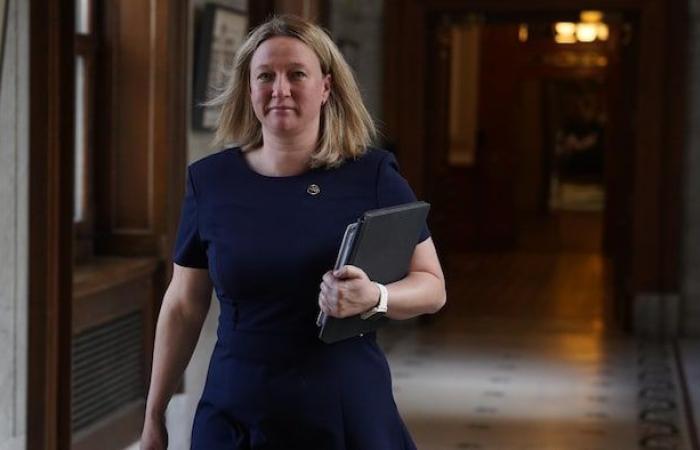“Unacceptable”: this is the term used by the great chiefs and by the chiefs of the Atikamekw and Anishnabe nations, gathered Wednesday in Trois-Rivières, on the subject of the new Quebec forestry regime being developed by the Legault government.
While it is supposed to modernize the forestry regime, the reform instead takes a step backwards by increasing control over the forestry industry, to the detriment of the people who have lived there since time immemorial and of the Quebec people.
No forestry activity will be carried out on the respective territories of the Atikamekw and the Anishnabe without their authorization. Next actions will come shortly.
For weeks now, these First Nations have been making themselves heard on this subject by ruling that Quebec wants to take away their rights. to grant them to the forestry industry
in particular by not imposing on this industry the obligation to consult the members of an exploited indigenous territory.
We exclude nothing
In an interview with Espaces Autochtones, the chief of Lac-Simon, Lucien Wabanonik, said he believes that the Quebec government is lying by claiming that it is carrying out its modification of the forestry regime with all respect for Indigenous people.
It’s playing with words. This is manipulating public opinion. […] Quebec is completely lying to its population and to the First Nations.
His counterpart Constant Awashish, Grand Chief of the Atikamekw Nation Council, supports these remarks.
Seeing the government act cavalierly in this matter is a little worrying. […] We have the impression that we are also defending the future of young Quebecers.
Chefs remain more evasive when it comes to detailing the next actions
which could be undertaken in order to be heard by the government.
It is certain that, depending on Quebec’s stubbornness, the way we respond will be as firm as Quebec’s resistance. If there is firm resistance, we will have to demonstrate, we will have to take actions of different forms, which we have not necessarily decided yet
indicated Lucien Wabanonik. We’re not excluding anything.
S’there are all kinds of possibilities that have been put on the table
Constant Awashish thinks he there are still possibilities to find diplomatic ways to achieve something satisfactory
.
At the time of publishing these lines, Native Spaces had not yet received answers to questions posed to the Ministry of Natural Resources and Forests.
Worried First Nations
Open in full screen mode
Minister Maïté Blanchette Vézina (Archive photo)
Photo : - / Sylvain Roy-Roussel
At the beginning of December, many leaders sounded the alarm, including through an open letter, accusing the government of transgress one’s constitutional obligations
towards the First Nations.
There is nothing to protect our ways of life, nothing to stop the degradation of our ancestral territories. There is no mention of ecosystem management and the maintenance of old forests, so precious for our biodiversity and for the woodland caribou.
could we read there.
This modification of the forest regime will obviously be carried out with full respect for indigenous communities.
then responded the Minister of Natural Resources and Forests, Maïté Blanchette Vézina, emphasizing the need for reform to to have a dynamic forestry sector and to ensure the sustainability of our forest
.
The development of the reform follows the discussion tables on the future of the forest, conducted last winter. Quebec aims to submit its reform project at the beginning of 2025.
However, the content of this reform remains rather secret, the government currently showing a certain opacity, in particular by refusing to say to whom it is speaking.






